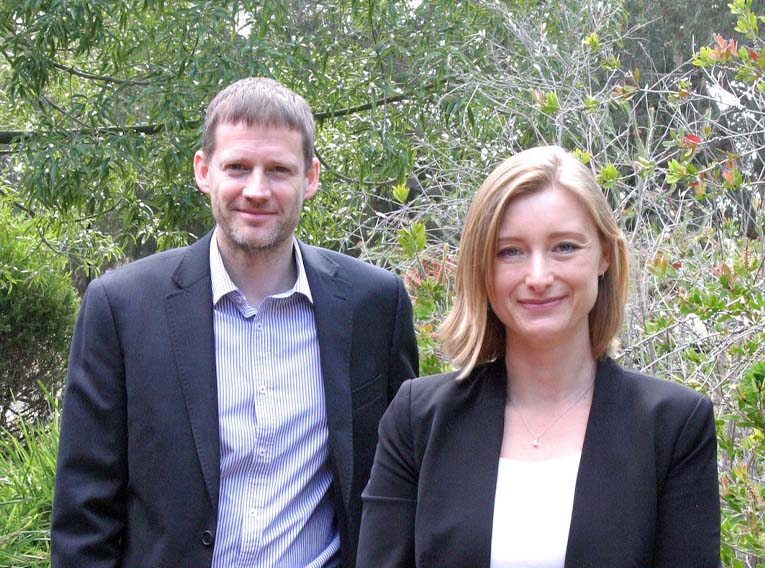$60,000 has been awarded for a project investigating a new way to tackle disease-inducing chronic inflammation linked to type 2 diabetes.
Professor Pfleger and Dr Elizabeth Johnstone (pictured above) and the Molecular Endocrinology and Pharmacology Laboratory team at the Harry Perkins Institute of Medical Research, in collaboration with colleagues at Monash University, hope to reduce health complications of type 2 diabetes by blocking a newly-discovered pathway.
Inflammation is increased in type 2 diabetes and we’ve found this pathway effectively stokes the fires of inflammation in the body, making it burn more fiercely, increasing the risk of it getting out of control and causing collateral health damage.
The group has found that key proteins on the surface of cells involved in chronic inflammation – known as Immunoglobulin-like Cell Adhesion Molecules – are turned on by a process called transactivation when other G protein-coupled receptor molecules on the cell surface are themselves turned on. They aim is to develop smart inhibitors of this pathway in order to keep inflammation under control and, in doing so, treat and prevent type 2 diabetes complications, such as atherosclerosis – which is the formation of fatty deposits in arteries – and kidney disease.
This new funding will support research into the underlying molecular mechanisms driving this transactivation process and test peptides that modulate the pathway, to expand the number of potential type 2 diabetes drug targets.
Additionally, the work will involve use of BRET – bioluminescence resonance energy transfer – technology, which Professor Pfleger’s laboratory is a world-leader in using to study protein-protein interactions.

